Introduction: Why Organic Makeup Matters
When was the last time you checked the ingredients in your makeup? If you’re like most people, probably never. But what if those products contain chemicals that harm your skin and the planet? That’s where organic makeup comes in. It’s not just a trend—it’s a movement towards healthier, more sustainable beauty. Ready to dive into the world of organic makeup? Let’s get started!
Table of Contents
1. What is Organic Makeup?
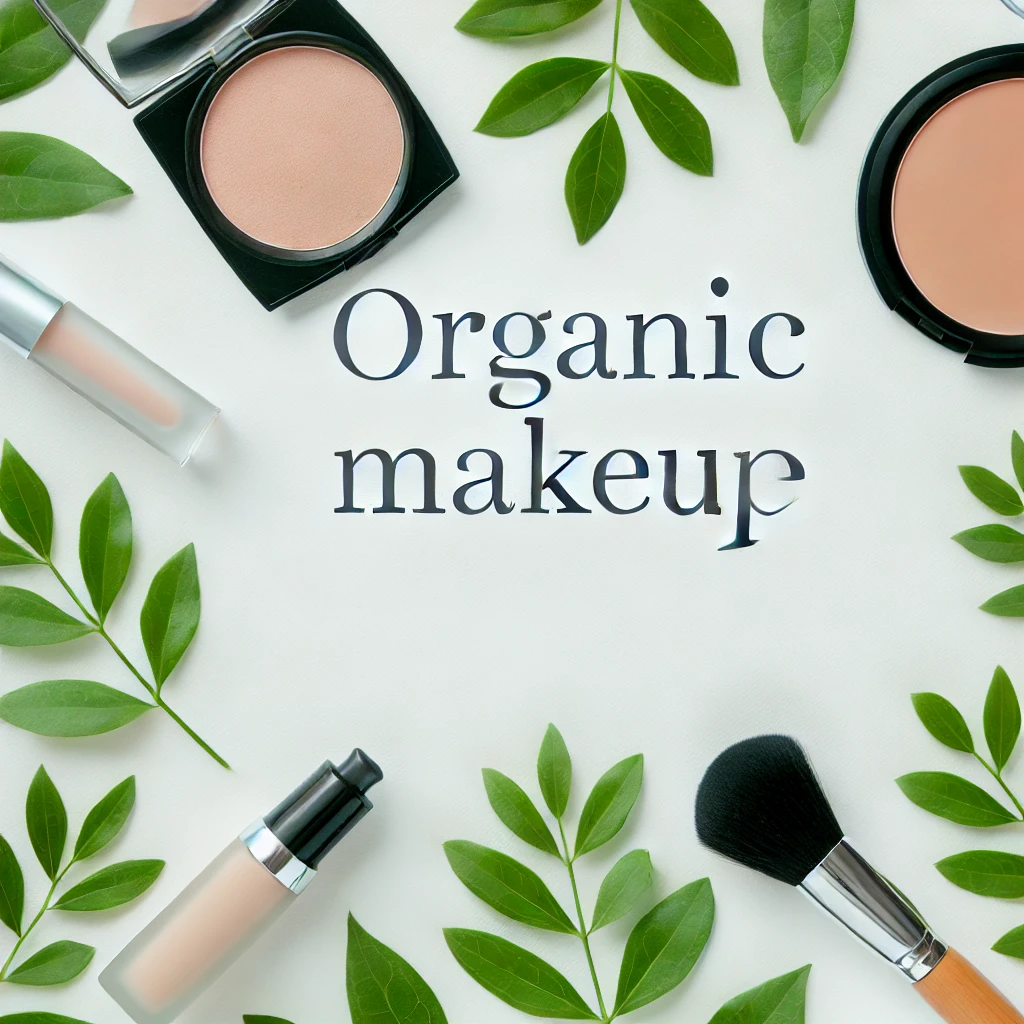
Let’s start with the basics—what exactly is organic makeup? At its core, organic makeup refers to cosmetic products that are crafted using natural and organically sourced ingredients. These products are free from harsh chemicals, artificial preservatives, synthetic fragrances, and other harmful additives commonly found in conventional beauty products.
Instead of relying on chemical formulations, organic makeup taps into the power of nature. Ingredients such as plant extracts, essential oils, and mineral pigments are often the main components. For example, an organic foundation might use aloe vera for hydration, jojoba oil for smooth application, and natural minerals for pigmentation.
Organic makeup is also regulated by certifications that set strict standards for ingredient sourcing and processing. Labels like USDA Organic, EcoCert, or COSMOS Organic ensure that these products are genuinely organic and meet environmentally friendly practices. In short, organic makeup is as close to nature as your beauty routine can get.
Why It’s Different from Natural or Clean Makeup
It’s worth noting that “organic makeup” is not the same as natural or clean makeup. While natural products may include some plant-based ingredients, they’re not necessarily free from synthetic chemicals. Clean makeup, on the other hand, focuses on being non-toxic but doesn’t always use organic ingredients. Organic makeup is the gold standard, ensuring the highest purity and environmental accountability.
2. Why Choose Organic Makeup?
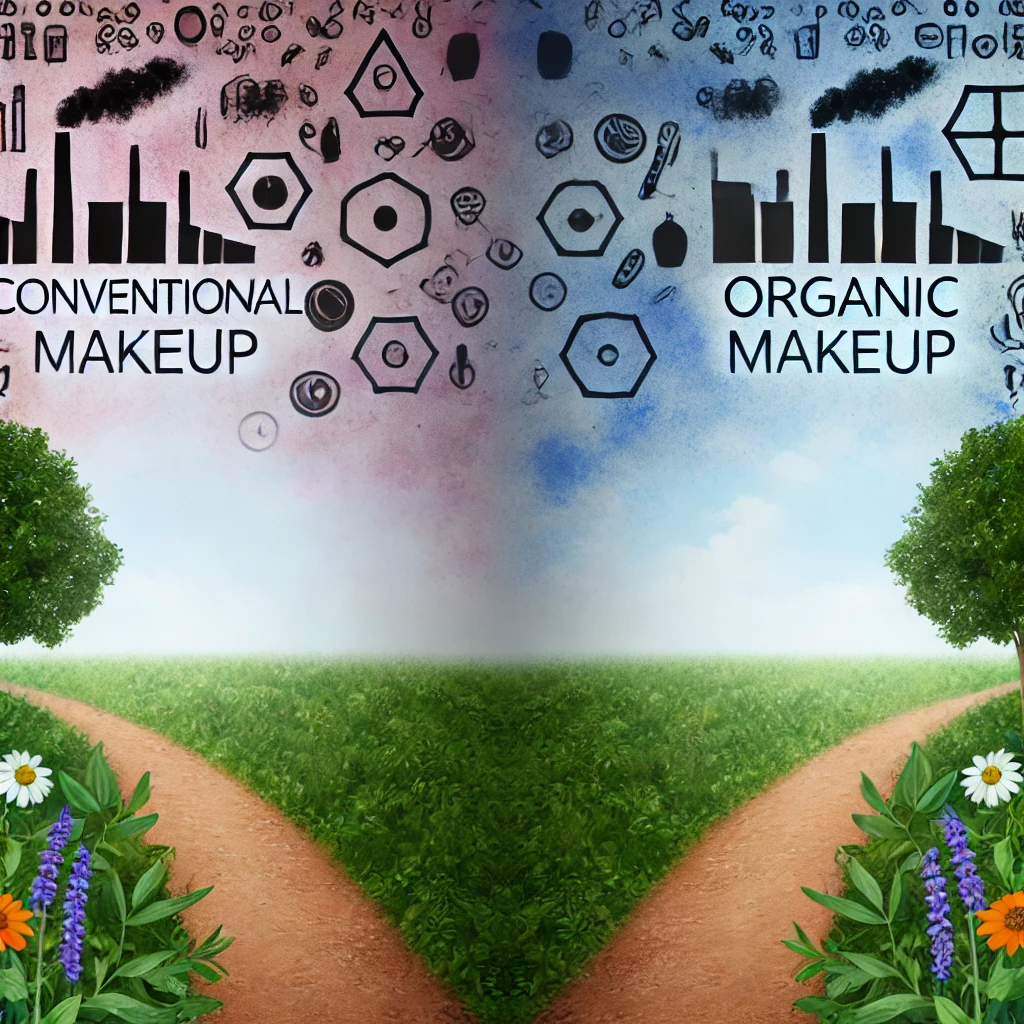
Why should you consider switching to organic makeup? The answer lies in the numerous benefits it offers for both your skin and the planet.
Healthier for Your Skin
Conventional makeup often contains synthetic chemicals like parabens, phthalates, and sulfates. Over time, these ingredients can irritate your skin, clog your pores, and disrupt your skin’s natural balance. Organic makeup skips these harmful additives and instead uses nutrient-rich natural ingredients that not only beautify but also nourish your skin. For example, organic lipsticks might include shea butter and coconut oil to hydrate your lips while adding color.
Eco-Friendly and Sustainable
Have you ever thought about how your beauty routine impacts the environment? The chemicals from conventional cosmetics often end up in waterways, causing pollution. Organic makeup is biodegradable and usually packaged in sustainable materials like glass or recycled paper. By choosing organic, you’re supporting brands that prioritize eco-conscious practices.
Gentle and Hypoallergenic
For anyone with sensitive or allergy-prone skin, organic makeup is often a gentler alternative. Free from harsh synthetic ingredients, it reduces the risk of redness, irritation, and breakouts. Whether it’s a lightweight organic foundation or a soothing aloe-infused mascara, these products are designed with skin health in mind.
Cruelty-Free and Ethical
Another reason to choose organic makeup is its commitment to animal welfare. Most organic beauty brands are cruelty-free, meaning they don’t test on animals. By purchasing organic products, you’re making a compassionate choice that aligns with ethical values.
A Metaphor: Feeding Your Skin
Think of organic makeup as a healthy meal for your skin. Just as your body thrives on nutritious, unprocessed foods, your skin flourishes when it’s fed pure, natural ingredients. Why settle for junk food when you can indulge in a wholesome feast?
In short, switching to organic makeup isn’t just a trend—it’s a step towards healthier skin, a cleaner planet, and a more ethical beauty routine. So, the real question is, why not choose organic makeup?
3. Common Ingredients in Organic Makeup
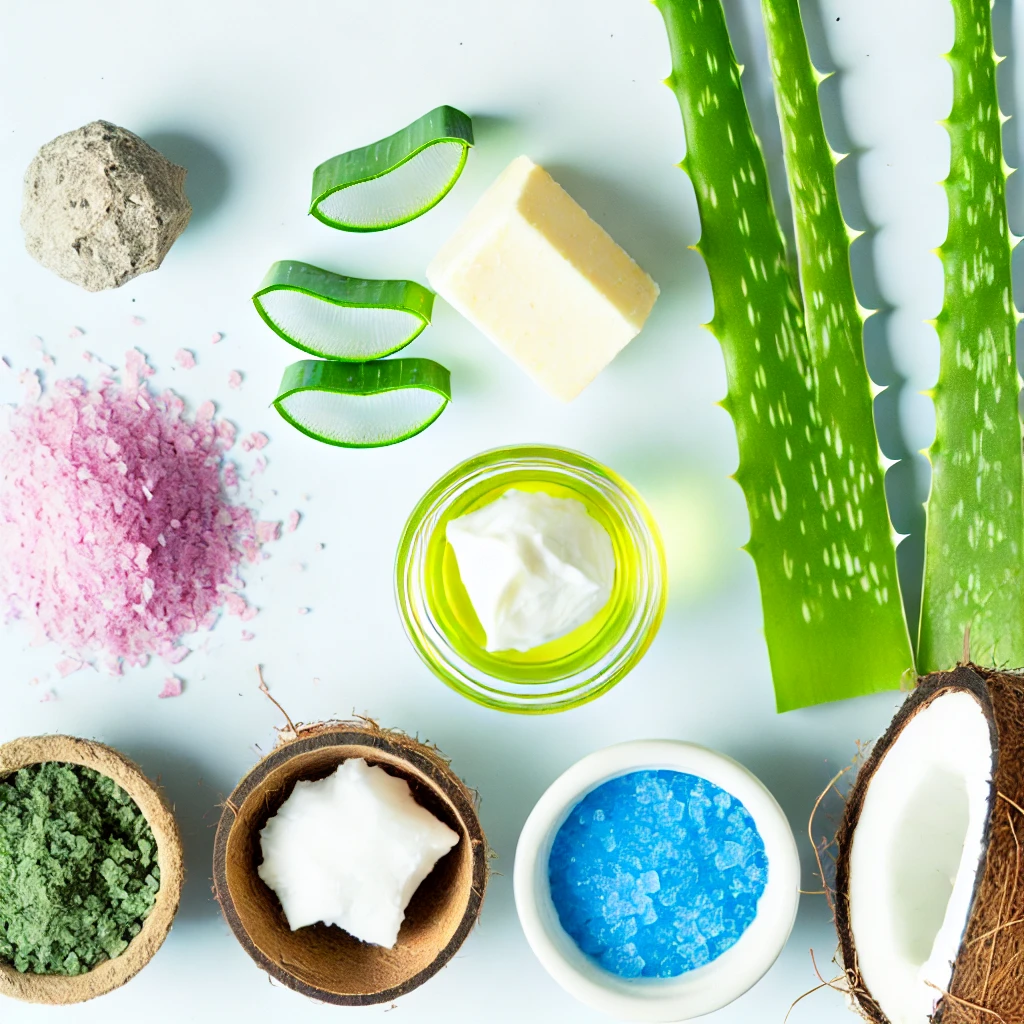
Organic makeup is made with an array of skin-loving ingredients derived from nature. These ingredients not only beautify but also improve the health of your skin over time. Let’s explore some of the most common ones:
Plant-Based Oils and Butters
- Coconut Oil: Provides deep hydration and has natural antibacterial properties, making it great for sensitive skin.
- Shea Butter: A rich emollient that softens and soothes dry skin.
- Jojoba Oil: Mimics the skin’s natural oils, helping to balance moisture levels.
Botanical Extracts
- Aloe Vera: Known for its soothing and anti-inflammatory properties, perfect for calming redness or irritation.
- Green Tea Extract: Rich in antioxidants that protect the skin from environmental damage.
- Chamomile: A natural anti-inflammatory that reduces puffiness and soothes sensitive areas.
Mineral Pigments
Minerals like iron oxides, titanium dioxide, and zinc oxide are commonly used in organic makeup to provide natural pigmentation and sun protection. For instance, zinc oxide acts as a physical sunscreen, shielding the skin from harmful UV rays.
Natural Fragrances and Preservatives
Organic makeup avoids synthetic fragrances and preservatives. Instead, it uses natural alternatives like essential oils (lavender, rose) or rosemary extract, which not only smell amazing but also have skin-nourishing properties.
4. Benefits of Organic Makeup

Switching to organic makeup is not just about avoiding harmful chemicals; it’s about embracing a beauty routine that nurtures your skin and aligns with your values. Here are some key benefits:
Gentle on Your Skin
Organic makeup is formulated without harsh irritants, making it ideal for sensitive or acne-prone skin. The natural ingredients provide hydration, healing, and nourishment, helping your skin look and feel its best.
Rich in Nutrients
Organic products are packed with vitamins, antioxidants, and minerals that actively work to improve your skin’s health. For example, vitamin E in organic foundations helps repair damaged skin cells, while antioxidants in organic lipsticks combat free radicals.
Environmentally Friendly
Every time you choose organic makeup, you’re contributing to a more sustainable planet. These products are often made with eco-friendly processes and come in recyclable or biodegradable packaging, reducing waste.
Non-Toxic Beauty
Conventional makeup can contain harmful chemicals like parabens and sulfates, which may disrupt hormones or cause long-term health issues. Organic makeup offers a safe alternative that’s free from these toxins, giving you peace of mind.
5. Organic vs. Conventional Makeup
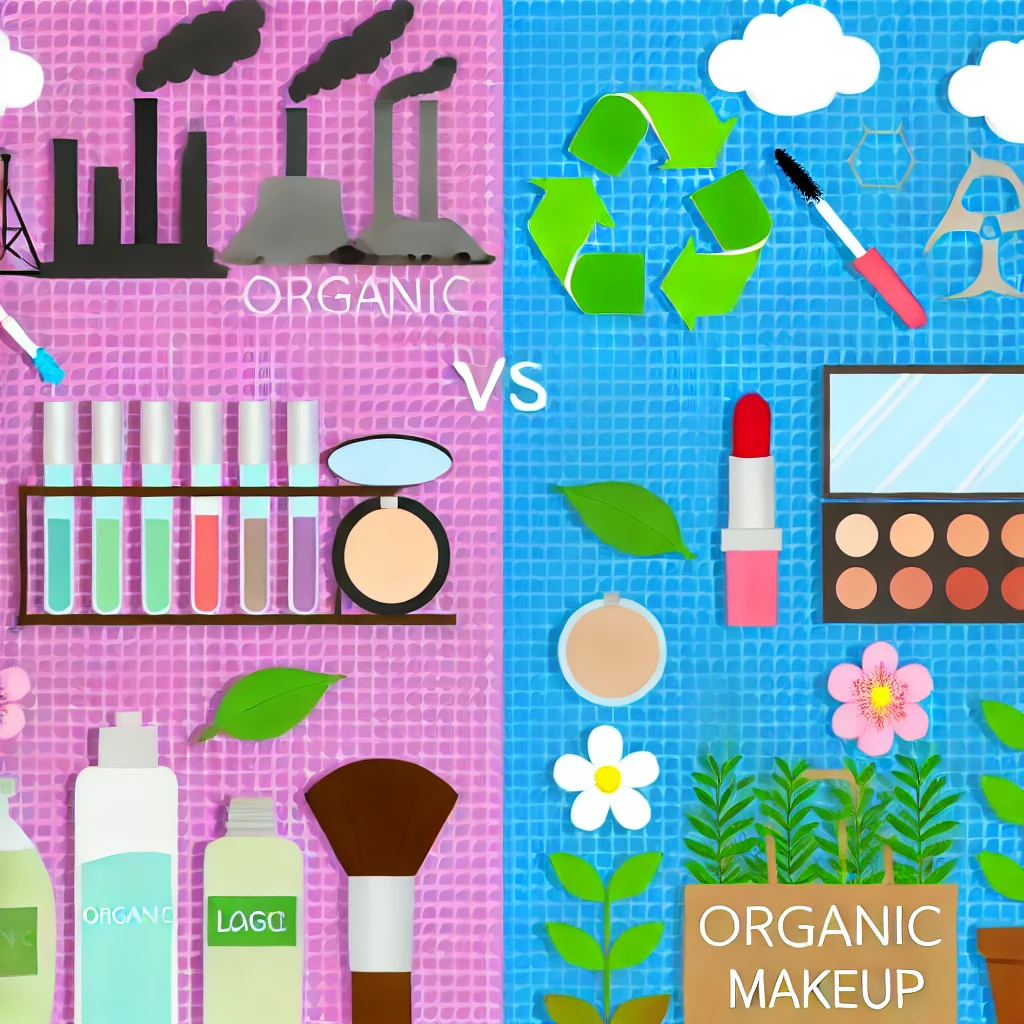
To fully appreciate the value of organic makeup, let’s break down the differences between organic and conventional makeup:
Ingredients
- Conventional Makeup: Often contains synthetic chemicals, artificial colors, and fragrances.
- Organic Makeup: Relies on natural, plant-based, and certified organic ingredients.
Skin Health
- Conventional Makeup: Can clog pores, cause breakouts, and lead to skin irritation over time.
- Organic Makeup: Promotes healthier skin by using breathable, non-comedogenic ingredients.
Environmental Impact
- Conventional Makeup: Contributes to water pollution and generates non-biodegradable waste.
- Organic Makeup: Biodegradable and produced through sustainable farming practices.
6. Types of Organic Makeup Products
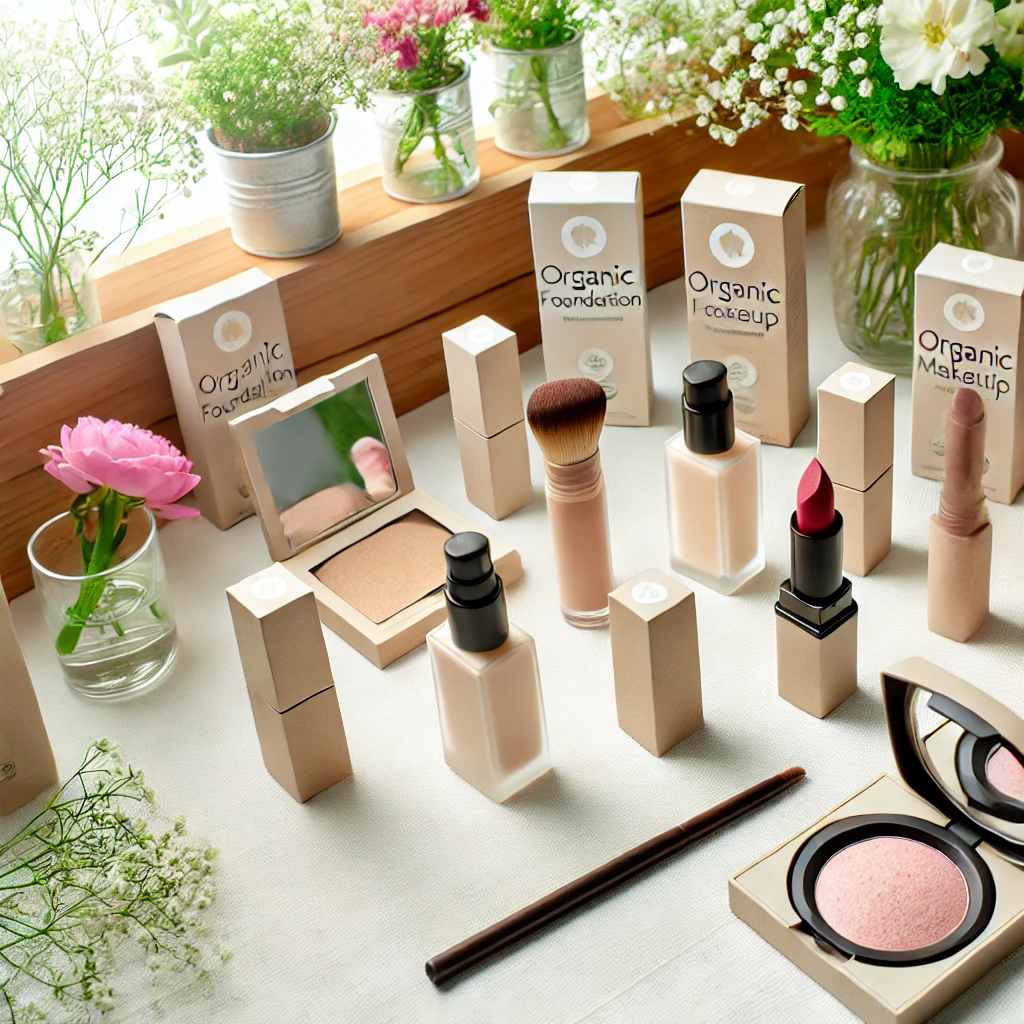
From everyday essentials to bold statement pieces, organic makeup has you covered. Here’s a look at some of the most popular products:
Foundation
Organic foundations are typically lightweight and provide buildable coverage. They use natural minerals for pigmentation and plant-based oils for hydration.
Lip Products
Organic lipsticks, glosses, and balms often feature shea butter, coconut oil, and natural pigments like beetroot powder, which provide color without synthetic dyes.
Organic mascaras, eyeliners, and eyeshadows are free from harsh chemicals and use mineral-based pigments for vibrant color. Aloe vera and castor oil are common ingredients in mascaras for lash conditioning.
Blush and Highlighter
Organic blushes and highlighters use natural clays and mica for color and shimmer. They add a radiant glow without any artificial additives.
7. How to Choose the Right Organic Makeup
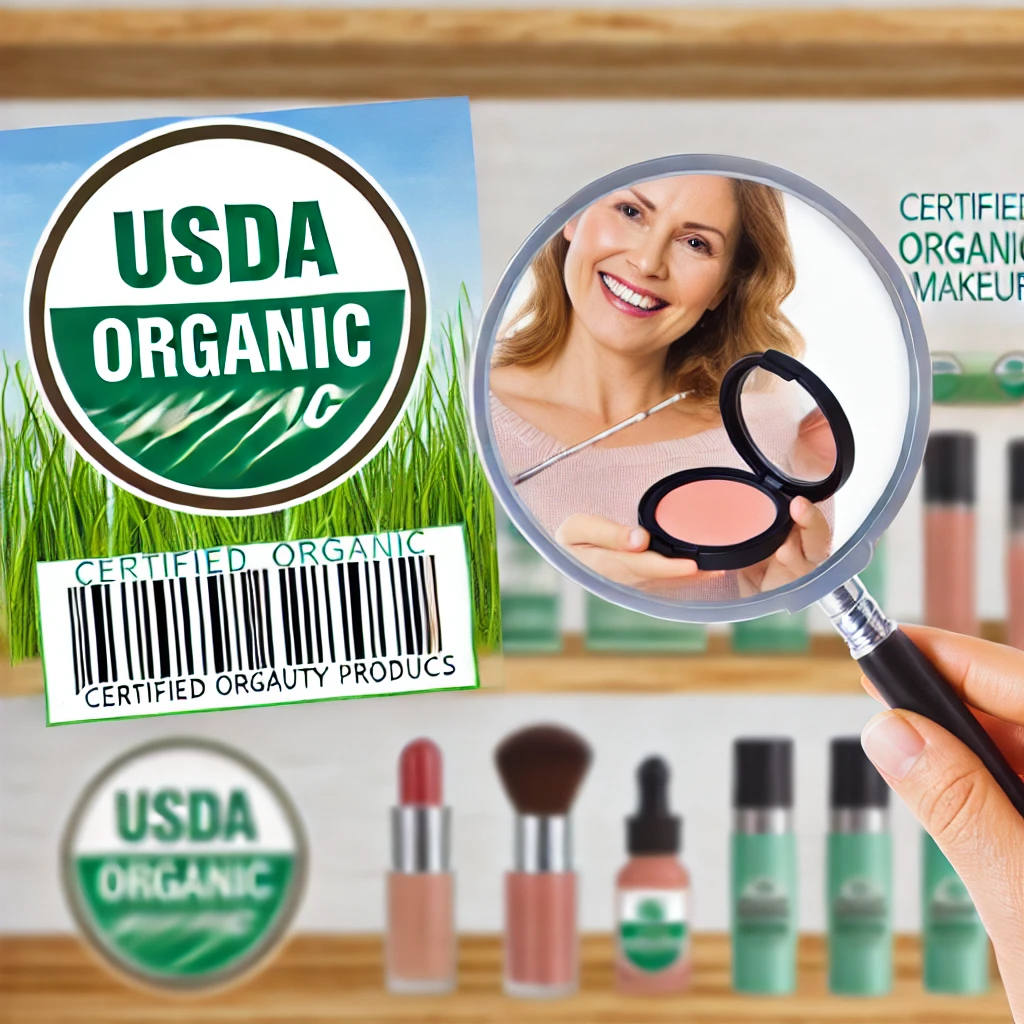
Choosing the perfect organic makeup might feel overwhelming at first, but it’s easier than you think. Here’s a step-by-step guide:
Step 1: Know Your Skin Type
- Oily Skin: Look for mattifying products with ingredients like kaolin clay.
- Dry Skin: Choose hydrating formulas with aloe vera or hyaluronic acid.
- Sensitive Skin: Stick to hypoallergenic and fragrance-free options.
Step 2: Check Certifications
Look for trusted certifications like USDA Organic, EcoCert, or COSMOS Organic to ensure the product meets strict organic standards.
Step 3: Read Ingredient Labels
Avoid products with terms like “fragrance” or “parfum,” as these often hide synthetic chemicals. Instead, opt for products with transparent labeling.
Step 4: Patch Test
Always test new products on a small area of skin to rule out allergic reactions.
By embracing organic makeup, you’re not just enhancing your natural beauty but also supporting a healthier, more sustainable way of life. Stay tuned as we explore DIY organic makeup ideas and tackle common myths about organic beauty!
8. DIY Organic Makeup Ideas
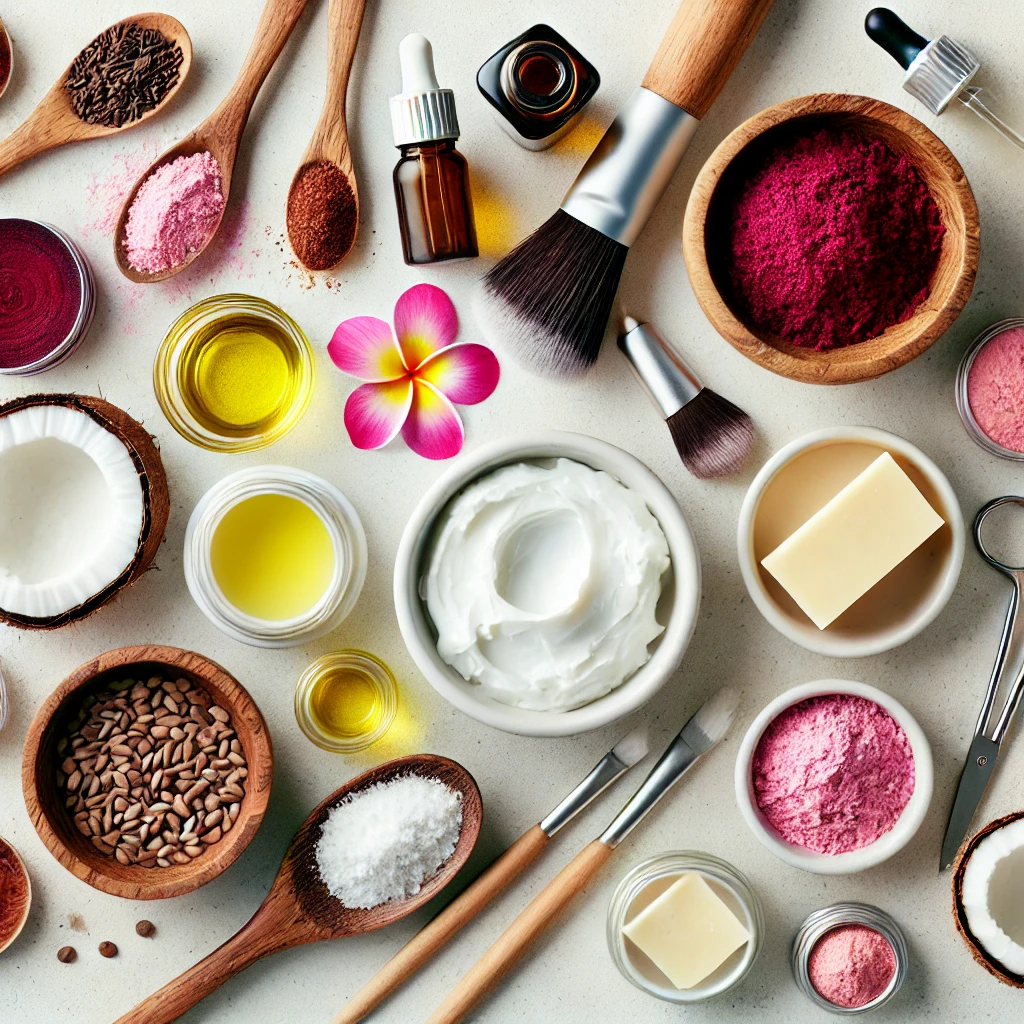
If you’re a fan of getting creative, DIY organic makeup is a fun and cost-effective way to personalize your beauty routine. Plus, it ensures you know exactly what’s in your products. Let’s explore some simple and effective recipes you can try at home.
DIY Organic Lip Balm
Ingredients:
- 1 tablespoon coconut oil
- 1 tablespoon shea butter
- 1 tablespoon beeswax pellets
- A pinch of beetroot powder (for color)
Instructions:
- Melt the coconut oil, shea butter, and beeswax together in a double boiler.
- Remove from heat and mix in the beetroot powder for a natural tint.
- Pour into small containers and let it cool to set.
DIY Organic Blush
Ingredients:
- 2 teaspoons arrowroot powder
- 1 teaspoon hibiscus powder (for a pinkish hue)
- A dash of cocoa powder (optional, for a deeper tone)
Instructions:
- Mix the powders in a small bowl until you achieve your desired shade.
- Store in a small jar and apply with a makeup brush.
DIY Organic Setting Spray
Ingredients:
- 1/2 cup distilled water
- 1 teaspoon witch hazel
- A few drops of rose water (for fragrance)
Instructions:
- Combine all ingredients in a spray bottle.
- Shake well before use and spritz lightly over your makeup to set it.
9. Myths About Organic Makeup
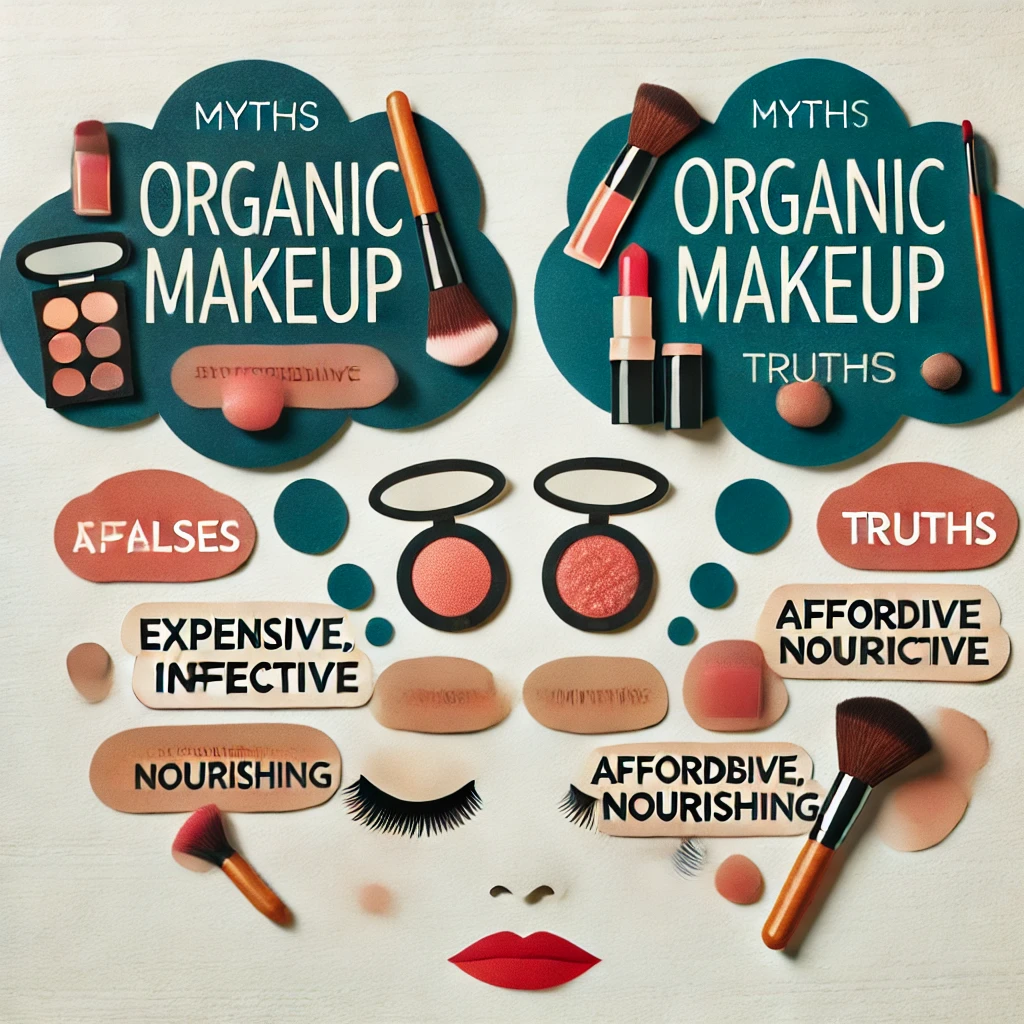
As organic makeup becomes more popular, misconceptions about it have also spread. Let’s debunk some of these myths:
Myth 1: Organic Makeup Doesn’t Perform as Well as Conventional Products
Fact: Modern organic makeup formulations are just as effective—if not better—than conventional options. Brands are continuously innovating to ensure high performance, with products offering excellent coverage, pigmentation, and longevity.
Myth 2: Organic Makeup Is Too Expensive
Fact: While some high-end organic brands come with a premium price tag, there are plenty of affordable options. Additionally, investing in organic makeup can save you from future skin-related expenses.
Myth 3: Organic Makeup Has Limited Options
Fact: The variety in organic makeup is expanding rapidly. From bold eyeshadows to long-lasting foundations, you’ll find organic alternatives for nearly every conventional product.
Myth 4: It’s Only for Eco-Conscious People
Fact: Organic makeup is for everyone. Whether you’re environmentally conscious or simply want healthier skin, organic products cater to a wide audience.
10. The Future of Organic Makeup
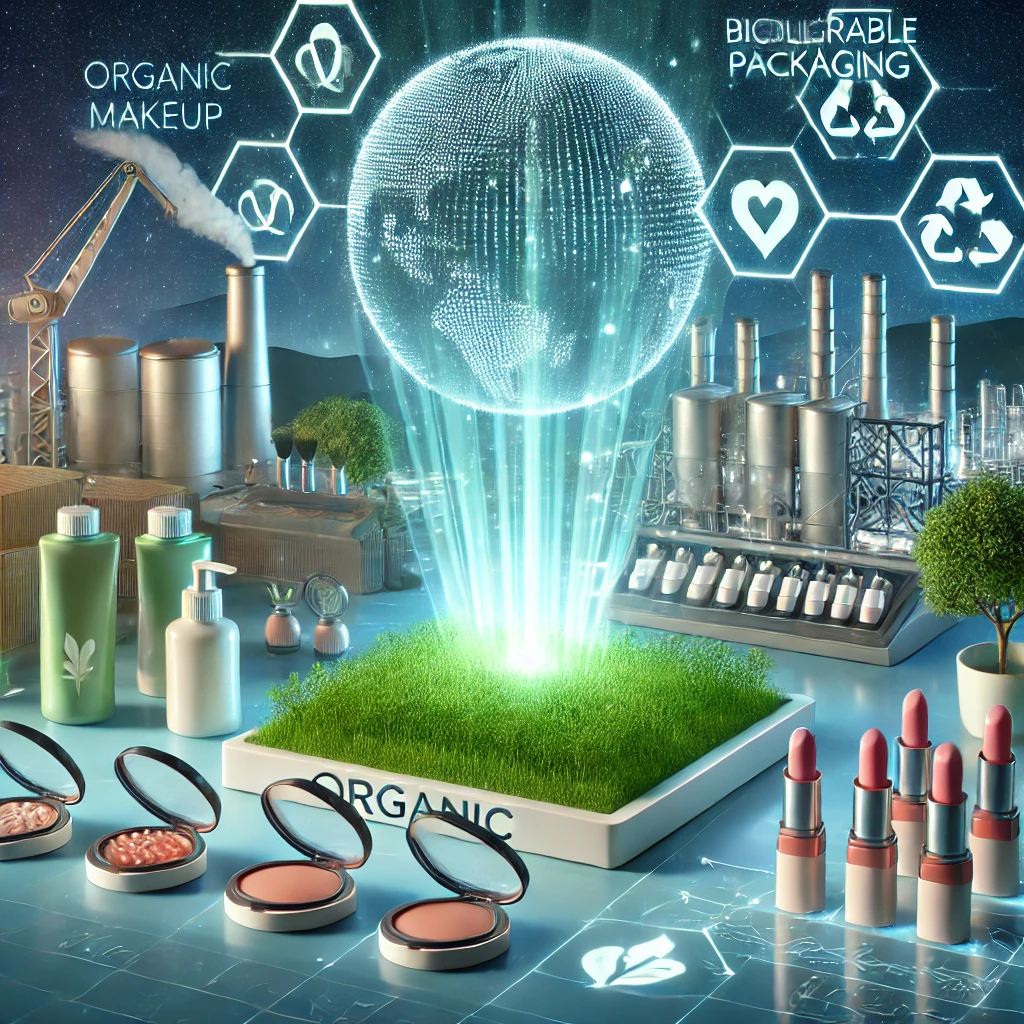
The organic beauty industry is growing at an unprecedented rate, and the future looks bright. Here’s what to expect:
Innovative Formulations
Advances in technology are making it possible for organic brands to create high-performance products without compromising their principles. For instance, bioactive ingredients derived from plants are now being used for anti-aging benefits.
Sustainable Packaging
The push for eco-friendly practices is leading to biodegradable, compostable, and refillable packaging. Imagine buying a lipstick and refilling the case instead of tossing it out!
Greater Accessibility
As demand increases, organic makeup is becoming more affordable and widely available. Drugstore brands are launching organic lines, ensuring that everyone has access to cleaner beauty.
11. Top Organic Makeup Brands
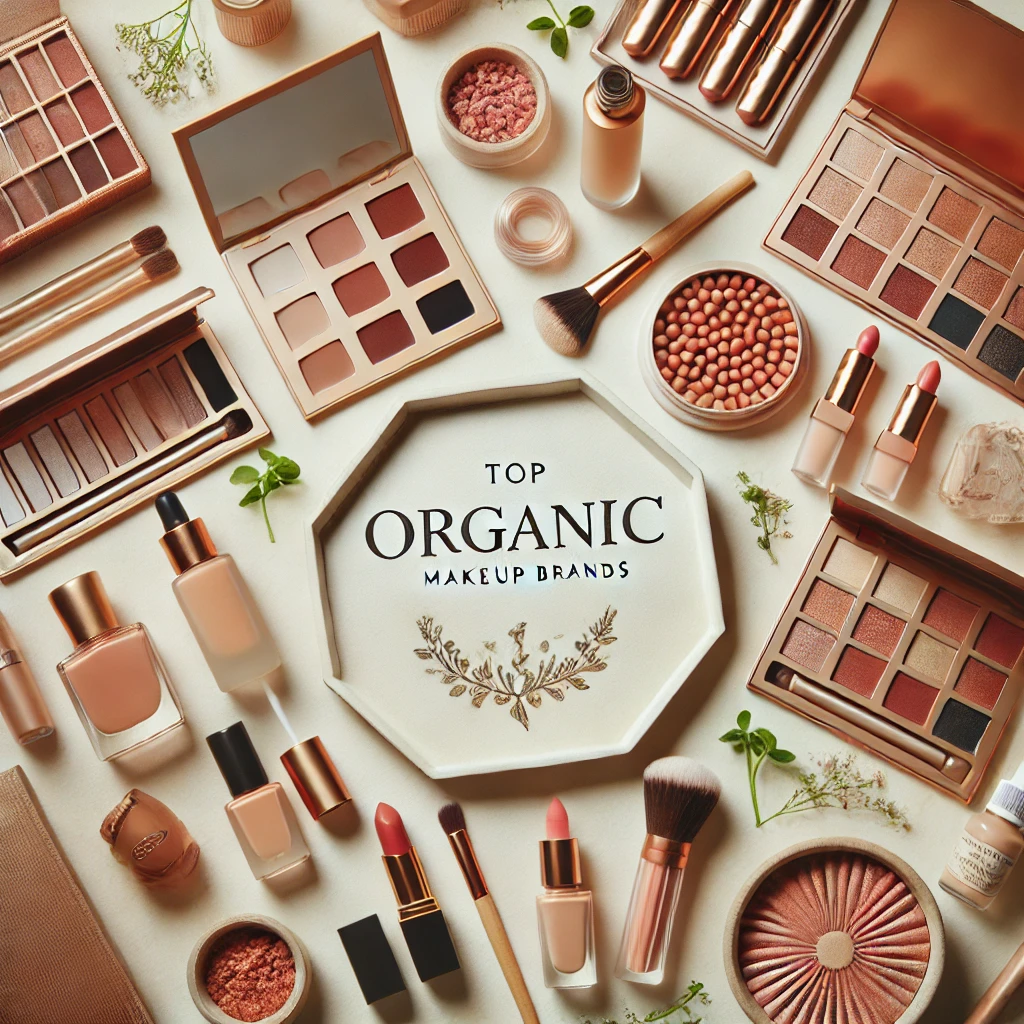
Ready to explore some trusted names in organic beauty? Here are a few standout brands:
RMS Beauty
Known for its lightweight, skin-nourishing products, RMS Beauty uses raw, food-grade, and organic ingredients in its formulations.
ILIA Beauty
A pioneer in clean beauty, ILIA combines organic ingredients with high-tech science to create products that deliver exceptional results.
Juice Beauty
This brand stands out for its commitment to sustainability and organic farming. Their products are packed with antioxidants and vitamins.
100% Pure
True to its name, this brand offers fruit-pigmented makeup that’s vegan, cruelty-free, and packed with organic goodness.
12. Caring for Your Organic Products
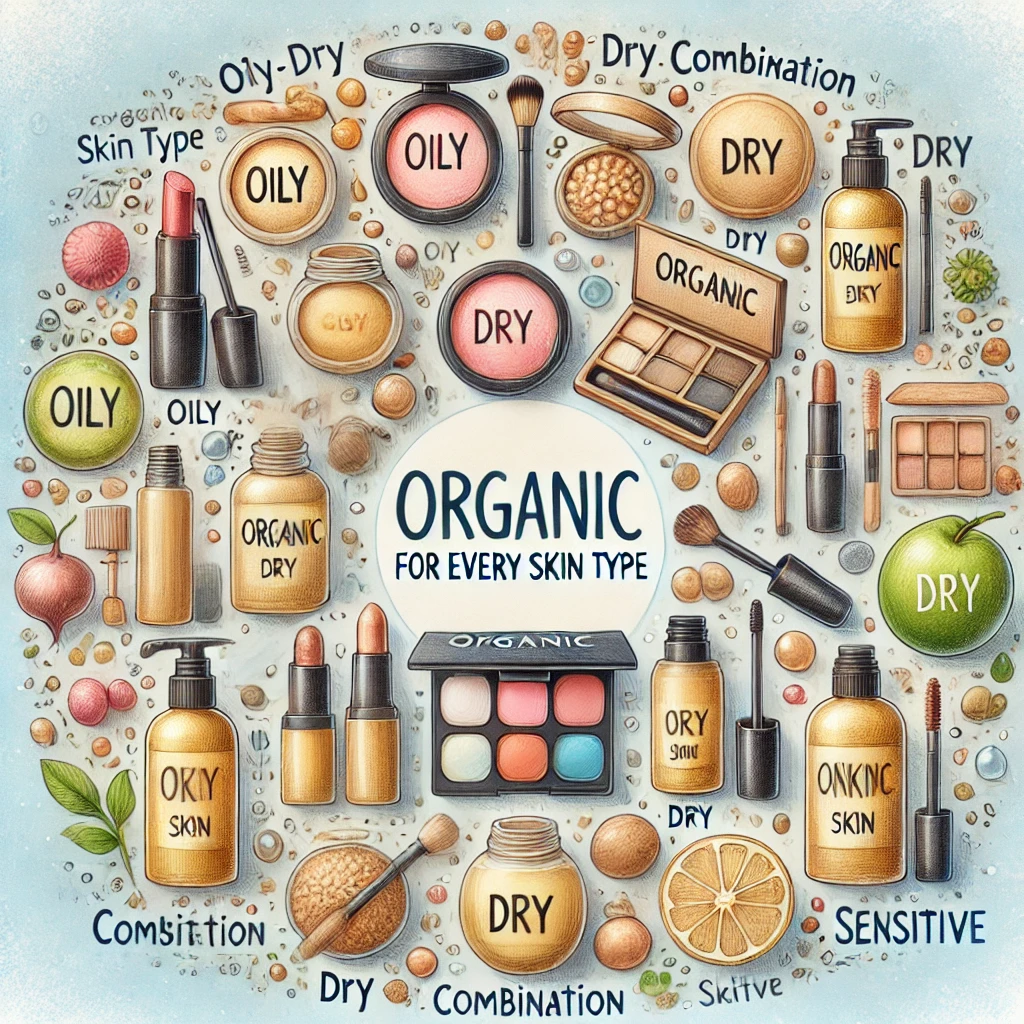
Because organic makeup is free from synthetic preservatives, proper care is essential to maintain its freshness and effectiveness. Follow these tips:
Store in a Cool, Dry Place
Heat and humidity can cause organic products to degrade more quickly. Keep them away from direct sunlight.
Seal Containers Properly
Always close product containers tightly to prevent exposure to air, which can reduce their shelf life.
Use Clean Applicators
Makeup brushes and sponges can introduce bacteria into your products. Clean your tools regularly to avoid contamination.
13. Challenges in Switching to Organic Makeup
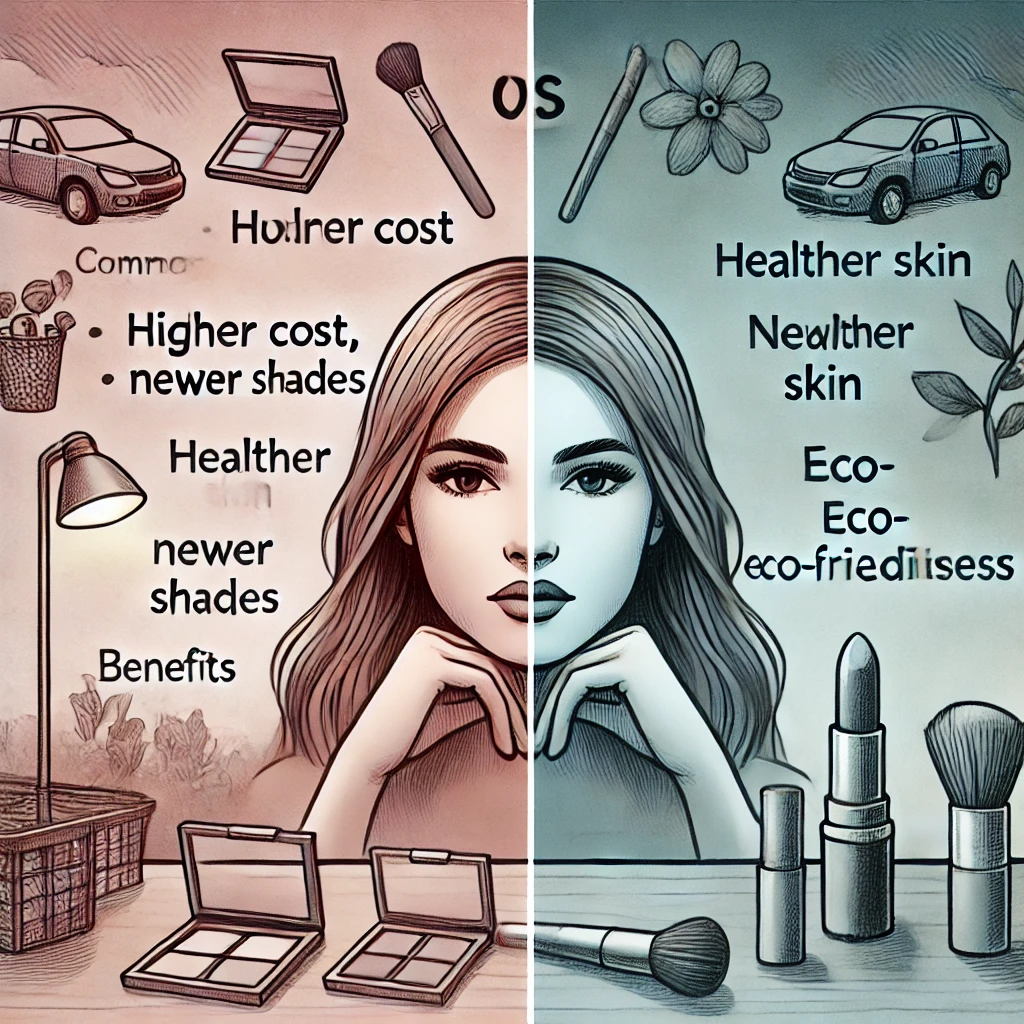
Switching to organic makeup might come with some challenges, but the benefits far outweigh them. Here’s how to tackle common issues:
Higher Cost
While some organic products are pricier, think of them as an investment in your skin’s long-term health. Many affordable options are available, so research and shop wisely.
Finding Your Perfect Match
Organic products may have fewer shades compared to conventional brands, but the range is expanding. Check out brands with inclusive shade options.
Adjusting to New Textures
Organic makeup often feels lighter and more breathable, which might take some getting used to. Over time, you’ll appreciate how natural and comfortable it feels on your skin.
14. Organic Makeup for Every Skin Type

Organic makeup isn’t one-size-fits-all. Here’s how to find products that work for your skin type:
Oily Skin
Look for mattifying products with ingredients like kaolin clay or rice powder to control shine.
Dry Skin
Choose hydrating formulas that include aloe vera, coconut oil, or hyaluronic acid for added moisture.
Combination Skin
Opt for lightweight, buildable products that balance oil control and hydration.
15. FAQs About Organic Makeup
1. Is organic makeup suitable for sensitive skin?
Yes, organic makeup is free from harsh chemicals, making it ideal for sensitive skin.
2. How can I tell if a product is truly organic?
Look for certifications like USDA Organic or EcoCert on the label.
3. Does organic makeup have a shorter shelf life?
Yes, due to the lack of synthetic preservatives, it’s essential to store organic products properly.
4. Can organic makeup provide good coverage?
Absolutely! Many brands offer buildable coverage for a flawless look.
5. Is organic makeup better for the environment?
Yes, organic makeup is biodegradable and often comes in eco-friendly packaging.
Conclusion
Organic makeup isn’t just a choice; it’s a lifestyle. By making the switch, you’re not only investing in your skin’s health but also contributing to a more sustainable planet. So, why not start small? Try swapping out one product at a time and feel the difference. Your skin—and the Earth—will thank you!
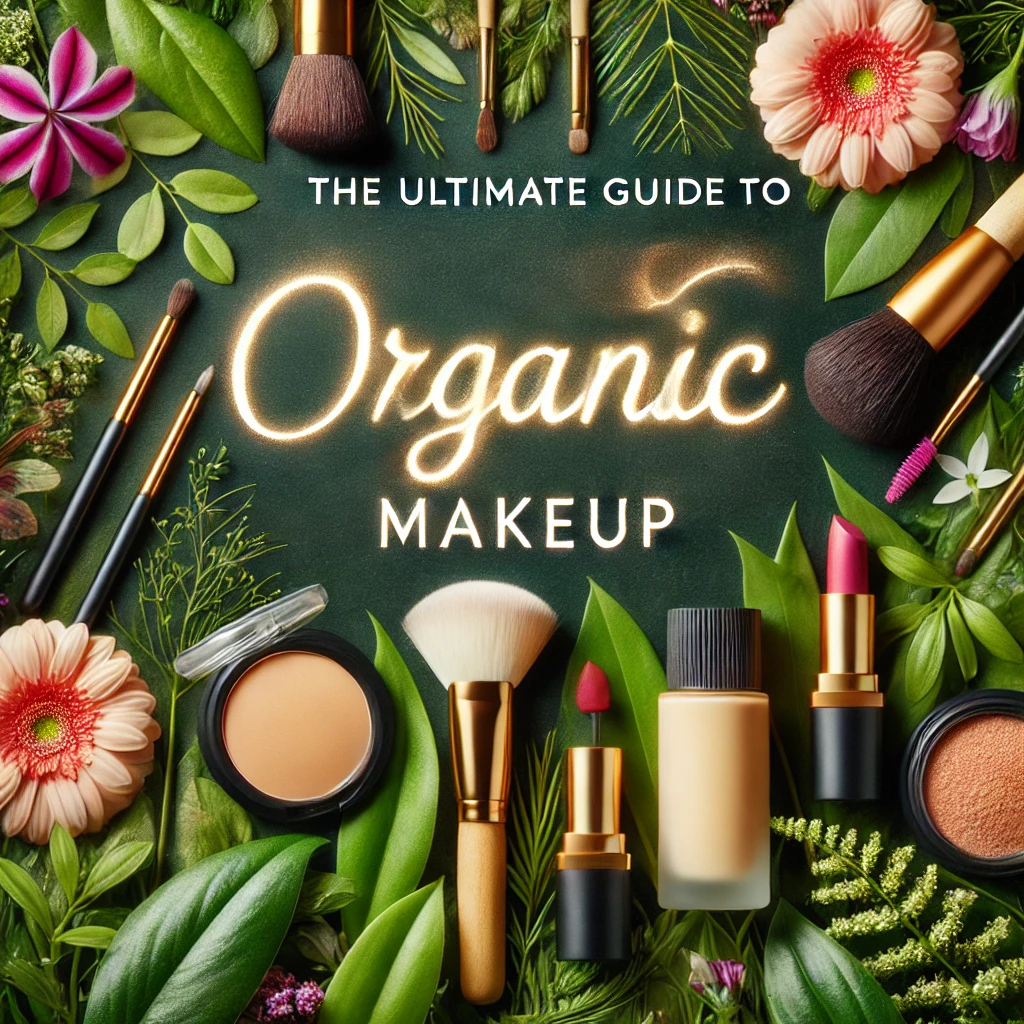


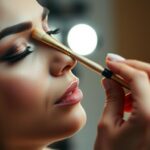



1 thought on “The Ultimate Guide to Organic Makeup: Why It’s the Future of Beauty”